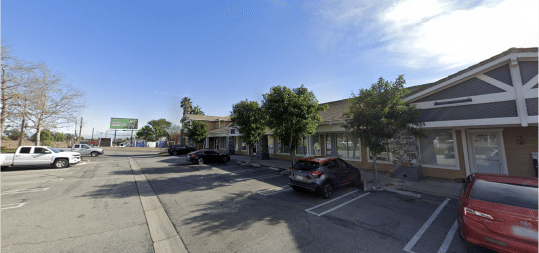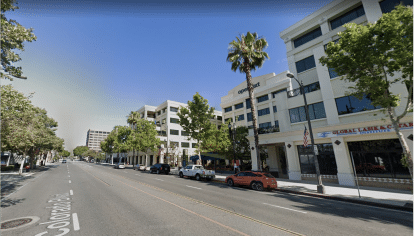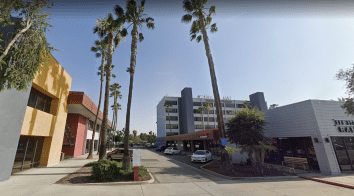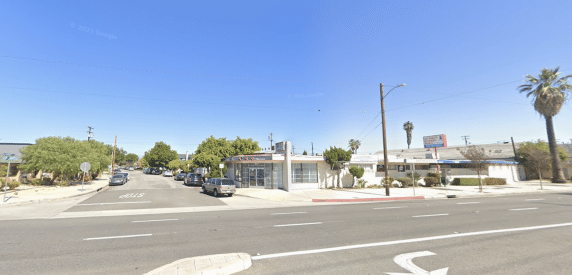
Dealing with the aftermath of a police arrest can be stressful for any involved parties. The jail environment and procedures could easily overwhelm you, particularly if you are the one behind bars. For many, finding a way to leave jail is a priority. You want to walk out of jail and take on other responsibilities. Posting bail is among the various options you have after facing arrest. It involves securing your freedom in exchange for an agreed fee deposited with the court. Nonetheless, at times, you don’t have the financial muscle to post the set bail amount. This happens because you cannot foresee arrests, meaning you may not have disposable money to post bail.
Working with a bail bonds service helps you process your bail fast and walk out of jail without denting your savings. Exploring your bail bond options is therefore advisable for ease of access to earlier jail release dates. At Cali Bail Bonds, you will receive excellent services crafted to provide financial support when you or a loved one is arrested. You can access the services throughout California for a quick jail release process.
To post bail or bond, you will have undergone a specific process leading to detention. Afterward, the bail or bond payment will serve as the security allowing for your release. The processes leading to bail bond services may affect you or your loved one, so you want to understand each stage. With the details, you can prepare for the upcoming processes for ease of compliance.
A typical arrest procedure involves being apprehended by the police for suspected unlawful activities. Some cases require law enforcement officers to produce arrest warrants. On the other hand, the officer may monitor your behavior over some time and form probable cause for the arrest. The officers will then move forward with the operation after gathering sufficient details.
When you notice the officers approaching you, staying calm is essential to help avoid giving any self-incriminating evidence. You should remember that the collected details will be used against you during trial regardless of the context you made the statements.
When you first arrive at the station after arrest, you will then undergo the booking process. It entails collecting essential details about you to help with identification and record keeping. Usually, the entire process will only last for a few minutes.
However, the duration may vary depending on various factors like the availability of data capturing materials. Despite this, you will only have a chance to proceed with the bail hearing after completing the booking process. The various details collected during the procedure include:
During the bail hearing, you are arraigned in court to determine whether you qualify for release on bail. This hearing should occur within twenty-four hours of arrest to uphold every citizen’s right to expeditious judicial services.
However, if you were arrested during the weekend, you may have to wait until normal working hours, which start on Mondays, for the courts to resume. In the meantime, you will receive information on the possible monetary bracket that you may have to pay for the charged offense.
Mostly, clients prefer having their criminal attorneys present during the hearing for additional support and representation. Their input is especially important if the judge is not convinced that you are eligible for a bail release. Thanks to the positions represented on your behalf, you may convince the judge otherwise and have a chance to return to your normal life.
As mentioned, the judge must consider various elements before declaring you fit for release on bail or bond. They do this to ensure that you do not pose any potential harm to society. Further, the judge should be convinced that you will not try to flee the country to avoid facing the criminal trial proceedings. Thus, based on these elements, the following are important considerations to make before granting bail:
Most repeat offenders will face harsher requirements and thresholds compared to first-time offenders. Based on the nature of the repeated offense, you may be denied bail for demonstrating impunity. You should also note that some judges will consider all information under your record, including the number of times you have repeated the crime.
Thus, offenders with more than two previous convictions are more likely to face mandatory detention pending the trial. Consequently, you may spend the entire period behind bars and extend the incarceration period if found guilty.
Additionally, the community's welfare is also an important consideration tied to the suspect’s nature of the offense. The judge presiding over your bail hearing has a responsibility to ensure that your release will not endanger any person in the community. This is primarily enforced where your arrest came from suspected involvement in violent crimes. Since the targeted victim may feel unsafe despite the matter being taken up in court, their input may be considered before your release.
Over the years, many arrested persons become fugitives in their countries to avoid prosecution for criminal offenses. The main option involves moving to a region beyond the American jurisdiction, hoping to prevent future legal consequences. To avoid recurring cases like these, the judge may ask you to surrender your passport and other travel documents.
By presenting the passport, you will have forfeited your freedom and ability to move out of South Gate until the criminal trial is concluded. If the judge is not convinced of your trustworthiness, they may also order your assets to be frozen. The order is often issued to prevent you from making travel arrangements.
Lastly, some offenses may disqualify you from exiting jail on bail or bond based on their severity. For example, in California, murder is considered a serious crime that poses high risks for the surviving witnesses and the general community. Further, releasing a murder suspect may lead to interference in conducting investigations as the person tries to clear any incriminating evidence.
Due to this, murder suspects will remain in custody until the formal proceedings are concluded and a sentence is available. If the suspect is found innocent, an acquittal follows, meaning that they are free to return to society. Conversely, a guilty verdict results in continuous imprisonment lasting for up to a lifetime.
In California, the criminal system allows arrested suspects to face release from jail before the formal trial begins. The allowance comes as an exercise of constitutional rights and to promote a fair hearing process. Due to the permissive provisions, you can exit jail soon after release, provided you either post bail or bond. The bail bond process entails securing your freedom by depositing a specific amount with the court as ordered.
Once you are free, you will have to comply with the court directives issued during a bail hearing. The directives require you to appear for necessary court sessions. Thus, the monetary deposit accepted by the court is your security in assuring them of your attendance. Defaulting in the attendance may lead to your forfeiture of the amount paid, as it contravenes the rules. You should also note that most suspects who face forfeiture will not recover the amount even if they only missed one mandatory session and appeared for others.
Missing the court sessions will also have a bigger effect on your relationship with the bail bondsman. Since they post the bail or bond amount from their account on your behalf, they will require a monetary refund. This comes from the direct consequences of your actions to the forfeited money.
Overall, you may have to make the refund, attend all court sessions and even face arrest in severe cases. To avoid these restrictive consequences, you need to comply with the requirements and meet your attorneys for court updates. Your South Gate bail bondsman is also ready to provide regular updates on upcoming court dates.
When you contact a bail bonds service provider, the assigned bail bondsman will be ready to act, provided they acquired the necessary details. These are essential to help in your identification and in payment processing.
Moreover, the details are required when tracing your charge sheet and comparing it to the court records. The comparison process is necessary to ensure you face trial for the correct charge. When you learn of the details to provide your bail bondsman, you will save resources and time that would otherwise be spent in trying to research the details. The important information to convey includes:
After a bail bondsman works on your case and secures your release by posting bail or bond, you will later need to pay a service fee. Several guidelines are available for reference to control the amount recoverable from a client. The regulations provide a fee bracket ranging between ten to twenty percent of the total amount paid to the court on your behalf.
Subsequently, the small percentage fee should be a more feasible option compared to handling the court charges by yourself. For example, if the bail amount was set at $7000, you will only pay a service fee of about $700, depending on the rate.
Sometimes, your bail or bond fee may be set at an extremely high amount during the bail hearing. As a result, your service fee charge may also be beyond your financial reach, leaving you with few options to explore.
The Cali Bail Bonds service has considered this possible setback and is open to exploring several payment plans. Upon finding that your fee is too high, you can restructure the payment and complete it in installments. By doing so, you will ease the financial pressure you could have otherwise dealt with.
Despite the available flexibility, you want to do your best to fulfill your financial obligations to avoid any repercussions that arise from defaulted payment. If a client defaults consistently, the bail bonds service provider may pursue legal action against you to recover the amount.
By being summoned to answer additional charges in court, your expenditure on legal fees may increase significantly. Overall, you will spend a high amount compared to making payments on time. Thus, sticking to the agreed plan is ideal.
When trying to gather more details about your loved one’s arrest, you will need to contact several offices or departments for additional information. The following are some critical details on how to access South Gate jail and courts:
South Gate Superior Court
8640 California Avenue,
South Gate, California, 90280,
The United States.
323-563-4011.
South Gate Police Department
8620 California Avenue,
South Gate, California, 90280,
The United States.
323-563-5400.
South Gate Jail
8620 California Avenue,
South Gate, California, 90280,
The United States.
323-563-5400.
Police Supervision Department
8620 California Avenue,
South Gate, California 90280,
The United States.
323-563-5436.
Nothing is more stressful than facing arrest and being detained for an offense. When in jail, you could have difficulties adjusting to the environment, on top of anxiety, when seeking ways to secure your release. Many jails have harsh conditions; hence, leaving you vulnerable to severe shock.
Because of the harsh jail environment, you want to secure your release as soon as possible and return to your normal life. Not only will you have a better chance to prepare your defense, but also an opportunity to plan for future expenditures and your loved ones’ well-being. Before you walk out of jail, the law requires that you post bail.
Since your arrest could happen when having financial problems, you want to engage a reputable bail bonds agent. They could help you walk out of jail at an affordable fee and payment plan. At Cali Bail Bonds, you will have access to various quality bail bond options and experienced agents.
Our team is well trained to meet your bail bond needs. In addition, the many payment options make us a more reliable and efficient option than similar services in South Gate, California. For more information on bail bonds services, contact us at 562-376-5476.
"*" indicates required fields






